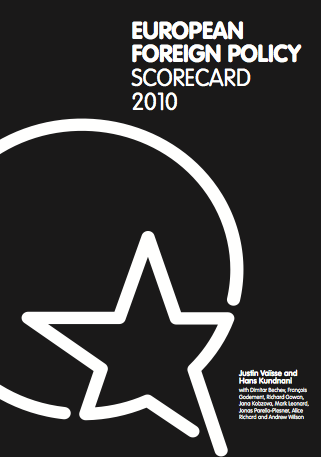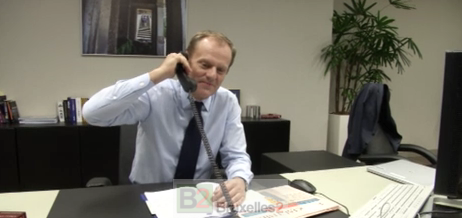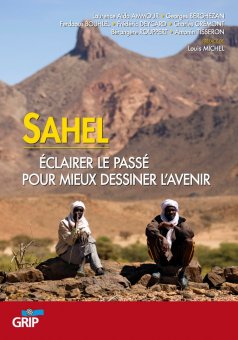EU foreign policy rated, assessed, dissected
 (BRUSSELS2) How to evaluate European foreign policy? It is around this question that researchers from the European Council on Foreign Relations (ECFR), led by Justin Vaïsse and Hans Kundnami, have built their "score card 2010".
(BRUSSELS2) How to evaluate European foreign policy? It is around this question that researchers from the European Council on Foreign Relations (ECFR), led by Justin Vaïsse and Hans Kundnami, have built their "score card 2010".
The interest of this tool is not the raw result today. But to grasp the evolutions in the future. As the authors write, the project starts with 2010, qualified as year "zero" for the new foreign policy framework created by the Treaty of Lisbon. On this basis, it will be possible in the future to follow Europe's progress or setbacks ».
The scoring system is simple: 5 points for the Europeans' unity of action, 5 points for the means devoted and 10 points for the results, a score out of 20 which is then translated into a letter, from A to E, from best to worst. 80 files, which are as many indicators, are thus visited, divided into six chapters: relations with the USA (rated "B-"), with Russia (C+), with China (C+), with Europe (C+), crisis management (B-) and multilateral issues (B+).
The good ones...
Among the best results, relations with the United States in the fight against terrorism and data sharing (A) or on Iran (A) as well as the response after the earthquake in Haiti (A-). "Despite initial confusion, the EU response was generous and effectively coordinated. But Europe has not received sufficient return for its contribution". The deployment of the EUMM Georgia mission can also be counted as a success even though, contrary to its mandate, it never managed to penetrate the self-declared independent territories of South Ossetia and Abkhazia (B+ The good result of crisis management in Somalia - with the deployment of two missions (Atalanta and Eutm Somalia) as well as support for the African Union peacekeeping force Amisom. seems still a distant goal (B) In Chad and Sudan, progress is more limited according to the authors even if the EU has made a significant commitment in Darfur as in Chad The EU has yielded to government pressure Chadian, and support for the International Criminal Court against Sudanese President Bashir had little impact (B-).
... and bad results
Among the poor results, the report notes the question of human rights in China and Tibet (D+) as well as relations with Turkey or the Cyprus problem (D+). In terms of crisis management, the response in Kyrgyzstan has not lived up to expectations, in particular support for the OSCE police mission has been too minimal, and this mission has been blocked for a long time, to the point that could speak of a failure (C-). Similarly, the response to the humanitarian crisis in Gaza has suffered from the refusal of Israeli officials to respond to European proposals (C+). Similarly, the response to crises in West Africa is considered insufficient, despite the levers and means which are theoretically available to Member States (C+) such as the stabilization of Afghanistan, where, despite significant financial means - the EU is the first donor - the results are not really up to par (C+).
Unity is not a guarantee of good results
It is interesting to observe that unity of action does not automatically guarantee a good action. Crisis management in Kyrgyzstan thus receives a poor mark (C-) whereas the Europeans were rather united (4/5) while crisis management in Macedonia (with the Greek opposition) or in Kosovo (with 5 States which do not recognize independence) receive respectively a B and a B-, thanks to the scale of the means committed or the results.
We can probably have different impressions than the authors. But the interest of this work is multiple, in particular to be able to identify tendencies and to arouse reflections. However, I have a methodological question in particular on Africa. One wonders if it would not have been clearer to dissect crisis by crisis (as was done for Georgia, Haiti, Kyrgyzstan...) rather to embrace the crisis management of an entire area - l West Africa - which has different springs and themes. Between Guinea-Bissau, Côte d'Ivoire and the problem of the Sahel, there are all the same some singular differences.


